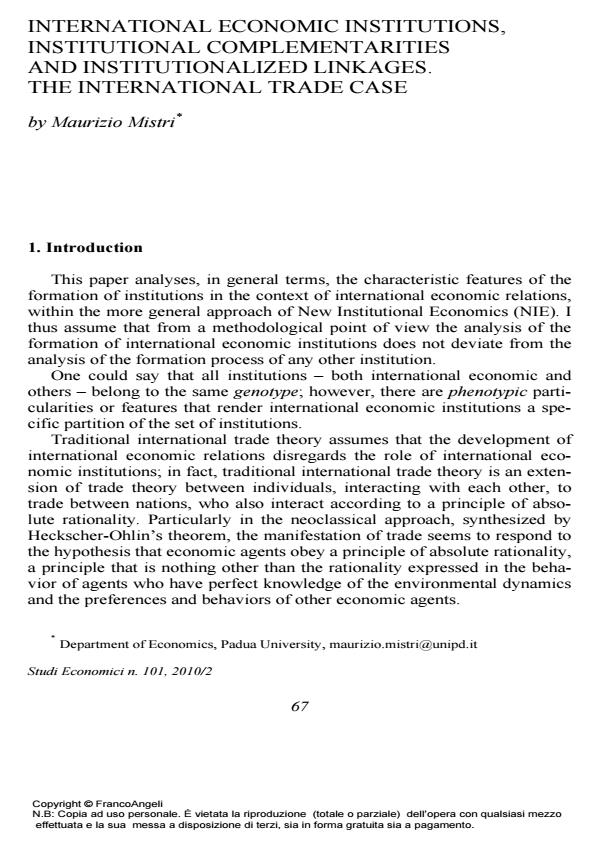International Economic Institutions, Institutional Complementarities and Institutionalized Linkages. The International Trade Case
Journal title STUDI ECONOMICI
Author/s Maurizio Mistri
Publishing Year 2011 Issue 2010/101
Language English Pages 24 P. 67-90 File size 569 KB
DOI 10.3280/STE2010-101004
DOI is like a bar code for intellectual property: to have more infomation
click here
Below, you can see the article first page
If you want to buy this article in PDF format, you can do it, following the instructions to buy download credits

FrancoAngeli is member of Publishers International Linking Association, Inc (PILA), a not-for-profit association which run the CrossRef service enabling links to and from online scholarly content.
This paper analyses the forces at the base of the formation processes of international economic institutions following the fundamental New Institutional Economics (NIE) approach. In particular, the paper assumes that new international economic institutions respond to a principle of procedural rationality. This principle indicates that the formation of institutions takes place in an environment dominated by the bounded rationality of agents that produce institutions based on procedural knowledge accumulated over time. Particular attention is dedicated to the relationship between institutional innovation and economic growth. Specialized institutions stem from this relation, on par with the real economy, and generate more and more complex institutional systems. Within the institutionalist approach to the formation of institutions, the paper highlights Aoki’s concepts on "institutionalized linkages" and "institutional complementarity"; these concepts are then correlated to Schelling’s "strategy decomposition" concept; subsequently the forces that lead to institutional changes (Aoki and North) are analyzed. Specifically, in light of North’s approach, conditions are analyzed that determine changes in institutions governing international trade relations deriving from changes in some structural dimensions such as relative price systems. These changes are possible since governments can renegotiate original agreements giving rise to compensations.
Keywords: International economic institutions, institutional complementaries, international trade
Jel codes: B52, D71, F02
Maurizio Mistri, International Economic Institutions, Institutional Complementarities and Institutionalized Linkages. The International Trade Case in "STUDI ECONOMICI " 101/2010, pp 67-90, DOI: 10.3280/STE2010-101004